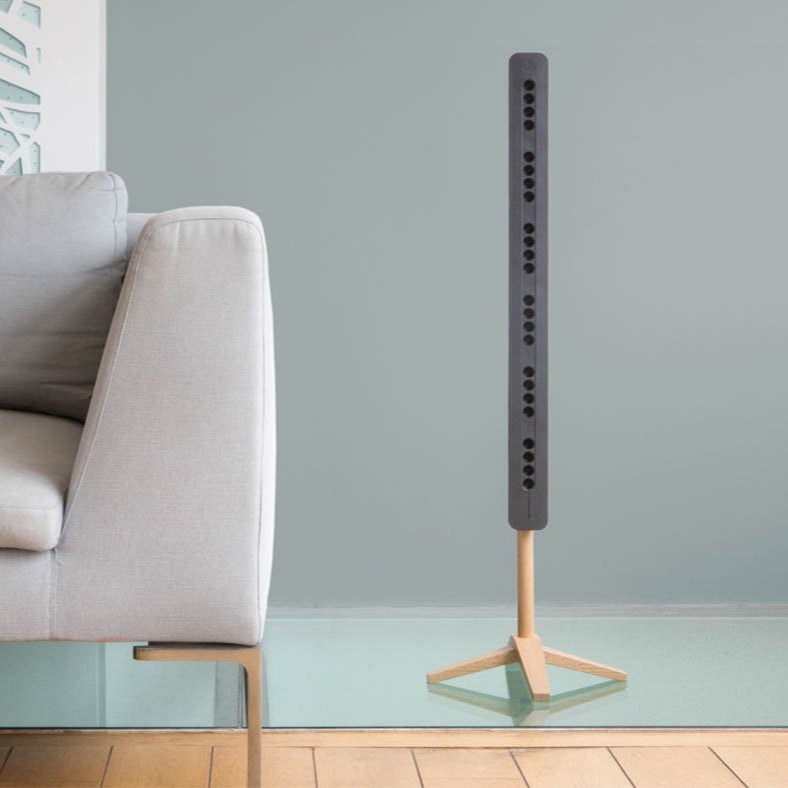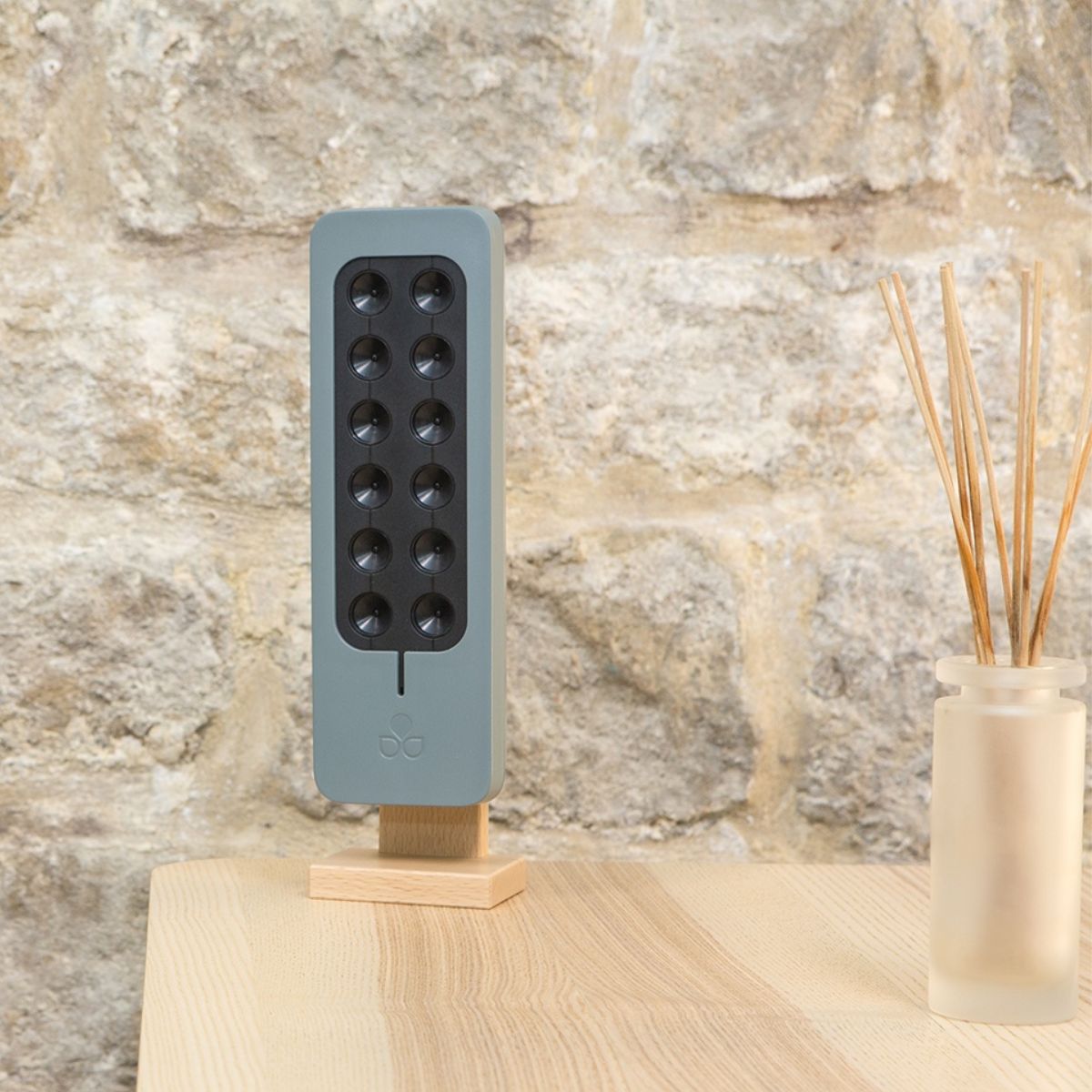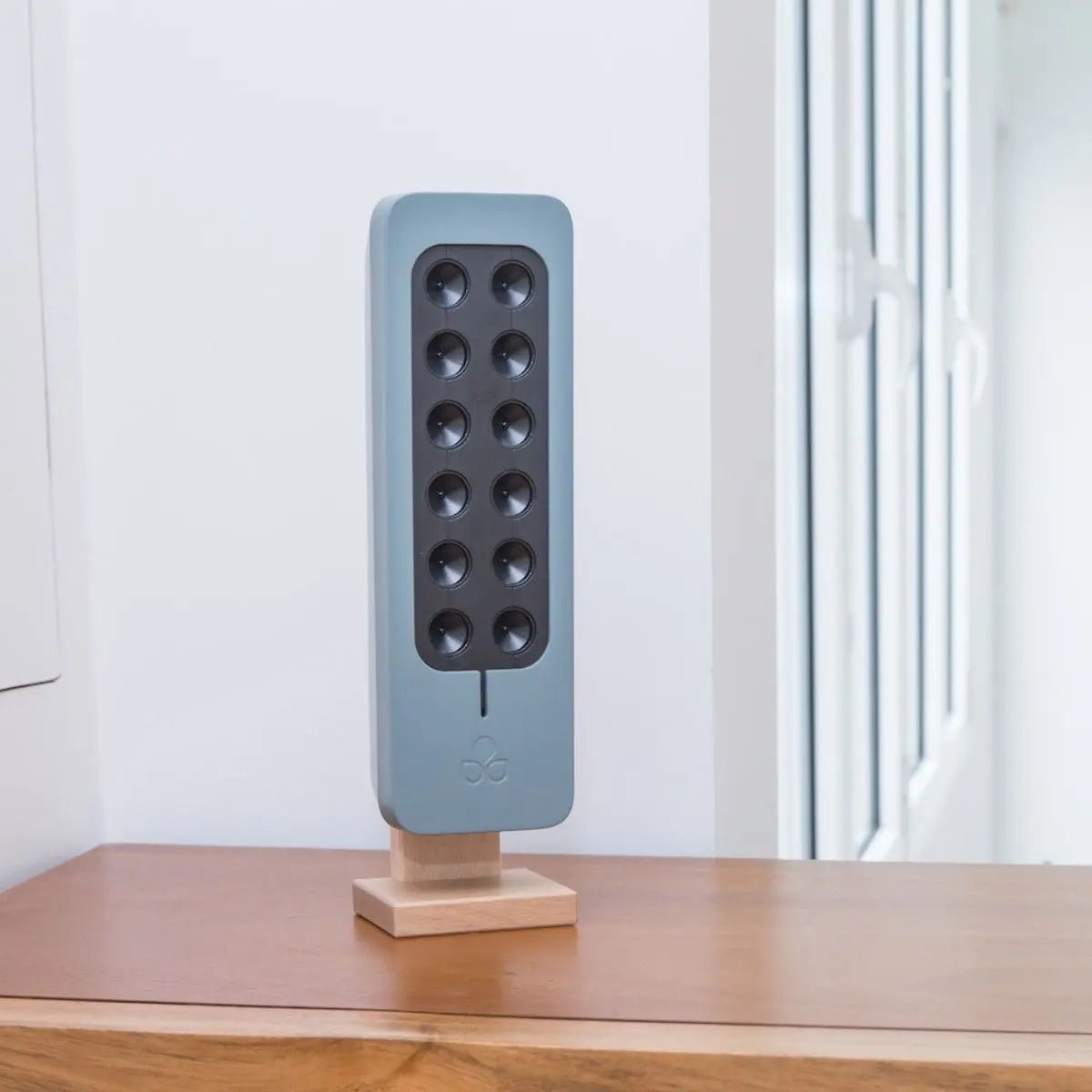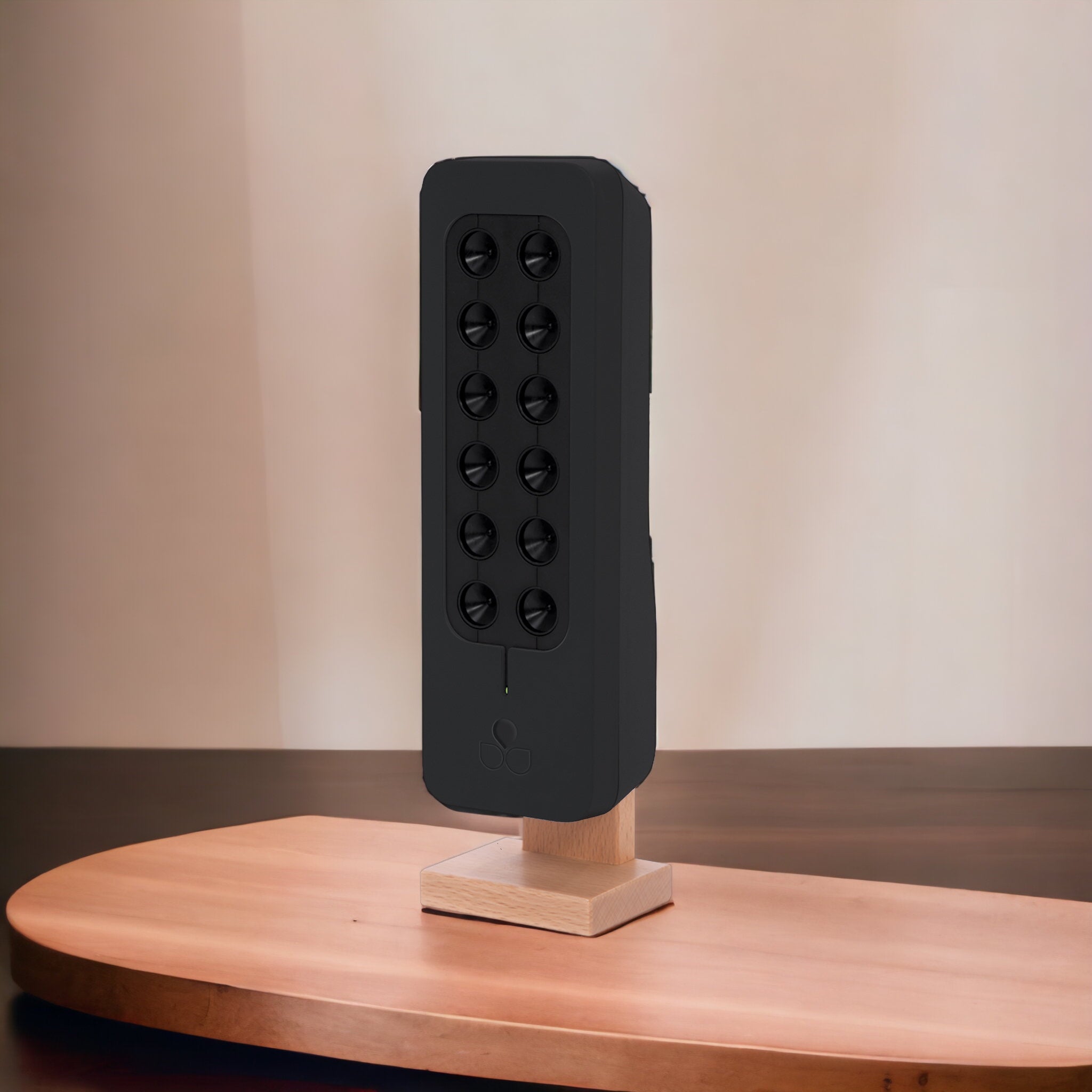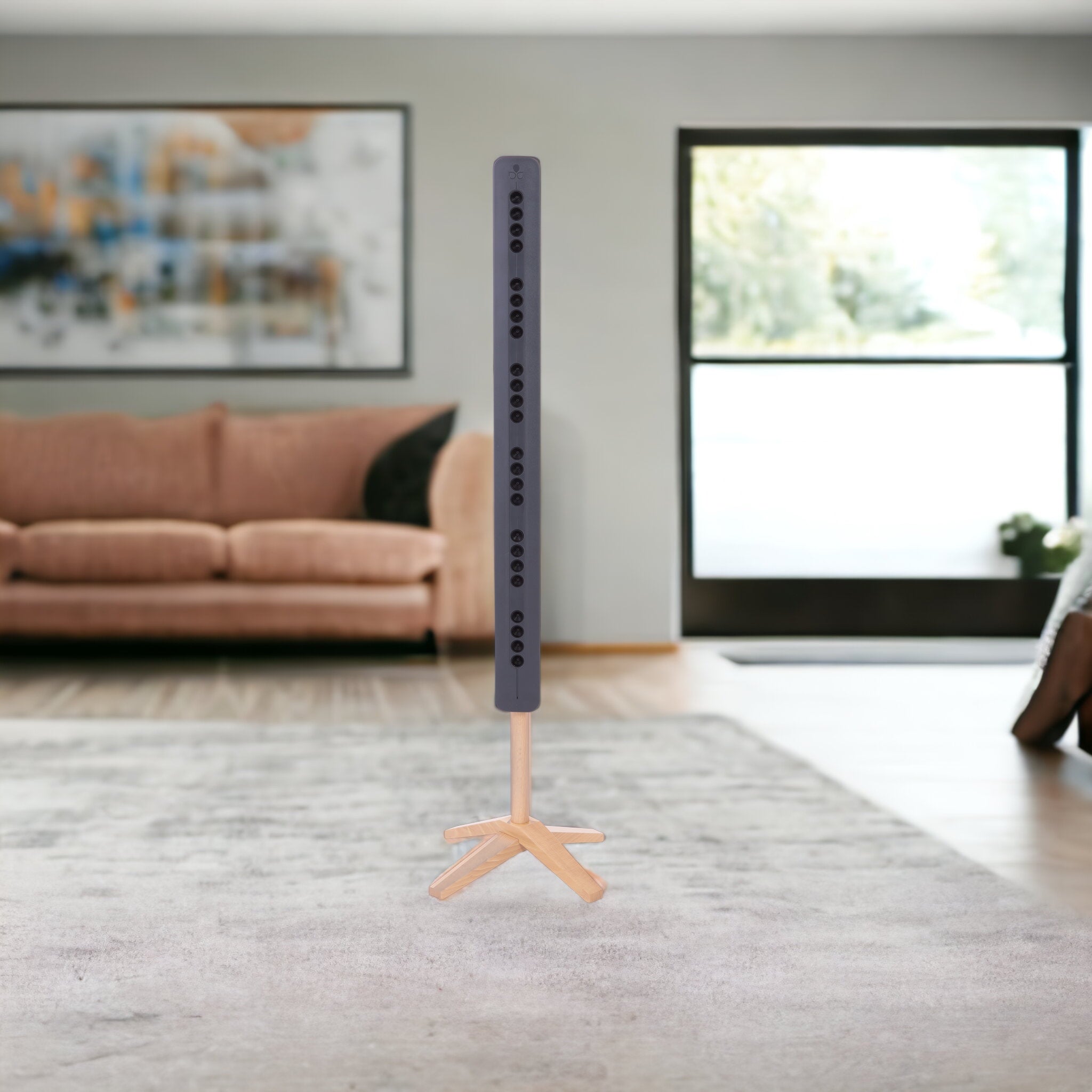In the vast realm of nature, there exists an invisible force that significantly influences our health and well-being. This force takes the form of negative ions, tiny charged particles that fill the air in certain environments. Their name might be misleading, but their impact is immensely beneficial for our health.
Understanding the Nature of Ions
Before diving into the benefits of negative ions, let's first understand what ions are. In simple terms, ions are atoms or molecules that have lost or gained electrons, resulting in an electric charge.
Positive Ions Vs. Negative Ions
Ions can be either positive or negative. Positive ions are created when an atom or molecule loses one or more electrons, while negative ions are formed when an atom or molecule gains extra electrons.
Contrary to what their names suggest, positive ions are harmful, often found in polluted environments, while negative ions are beneficial and are abundant in clean, natural settings such as mountains, forests, beaches, and waterfalls.
The Impact of Ions on Human Health
The effects of ions, particularly negative ions, on human health are profound. They can influence our physical and mental well-being in several ways.
The Detrimental Effects of Positive Ions
Positive ions are predominantly found in closed and polluted environments. They are produced by various devices such as air conditioners, photocopiers, electronic cards, and screens.
Their impact on human health can be detrimental, leading to increased irritability, migraines, and even thrombosis due to changes in the atmosphere's electrical charge. Researchers have found that weather changes that generate positive ionization can trigger a release of serotonin in our bodies, causing various symptoms like irritation, exhaustion, and sluggish thyroid symptoms.
The Beneficial Effects of Negative Ions
Unlike their counterparts, negative ions have a positive effect on human health and the air we breathe. They enter our bodies mainly through respiration and skin contact, facilitating cell exchange and the penetration of oxygen into the lungs.
Negative ions are also known for their ability to purify the atmosphere from pollutant particles. A prime example is the salty sea air, which has about 100 times fewer germs than urban air due to its high concentration of negative ions.
The Physiological Benefits of Negative Ions
Negative ions don't just purify the air; they can also impact our physiology in multiple positive ways.
Improving Sleep Quality
Negative ions can enhance our sleep quality. They accomplish this by balancing our autonomic nervous system, which controls our body's involuntary functions, including our sleep-wake cycle.
Enhancing Immune Function
Negative ions can also boost our immune function. They do this by neutralizing free radicals, unstable atoms that can damage cells and contribute to aging and diseases.
Revitalizing Cell Metabolism
Negative ions play a crucial role in revitalizing cell metabolism. They help facilitate the exchange of electronic substances in cell walls, improving the body's overall metabolism.
Alleviating Depression
Negative ions may also help treat mood disorders. In a study conducted by an Italian research team, negative ions demonstrated a beneficial effect on reducing symptoms of mood disorders and improving cognitive performance.
The Role of Negative Ions in Air Purification
One of the most notable benefits of negative ions is their ability to purify the air. They achieve this by attaching themselves to airborne allergens such as pollen, mold spores, bacteria, viruses, dust, pet dander, and cigarette smoke.
Once attached, these positive particles become negatively charged, causing them to clump together. As a result, they become too heavy to remain airborne and fall to the floor, preventing them from entering our respiratory system.
Air Ionizers: Harnessing the Power of Negative Ions
An effective way to increase the concentration of negative ions in indoor environments is by using air ionizers. These devices work by electrically charging air molecules to create negative ions.
Air ionizers are proven to remove airborne particles, dust, cigarette smoke, pet dander, pollen, mold spores, bacteria, and viruses. For instance, a powerful air ionizer can eliminate up to 97% of ultrafine particles and 95% of 1-micron particles within 30 minutes.
However, it's worth noting that not all air ionizers are the same. Some can emit ozone, a harmful gas that could negate the benefits of negative ions. Therefore, it's crucial to choose an air ionizer that doesn't emit ozone, like the TEQOYA ionizers, which have been independently tested and found to be ozone-free.
Negative Ions and Respiratory Health
Negative ions can significantly impact respiratory health. By reducing airborne particles and allergens, negative ions can help reduce the frequency or severity of respiratory conditions like asthma.
In fact, epidemiological studies have shown a significant reduction in the prescription of asthma drugs when patients were exposed to high concentrations of negative ions over a long period.
Bringing the Power of Negative Ions Home
Incorporating negative ions into our indoor environment can have profound health benefits. Not only do they help purify the air, but they also enhance our mood, sleep, and overall well-being.
By leveraging the power of air ionizers, we can harness the benefits of negative ions and ensure our indoor air is as healthy as it can be. Just remember to choose a device that doesn't emit ozone, such as TEQOYA ionizers, to maximize the benefits while ensuring safety.
With negative ions, we can bring the purifying power of nature into our homes, creating a healthier and more rejuvenating living environment for ourselves and our loved ones.
Conclusion
Negative ions are truly a force of nature, offering a plethora of health benefits while purifying our air. By understanding their effects and harnessing their power through devices like air ionizers, we can significantly improve our indoor air quality and our health. So, let's embrace these invisible powerhouses of nature and breathe in the benefits of negative ions.

